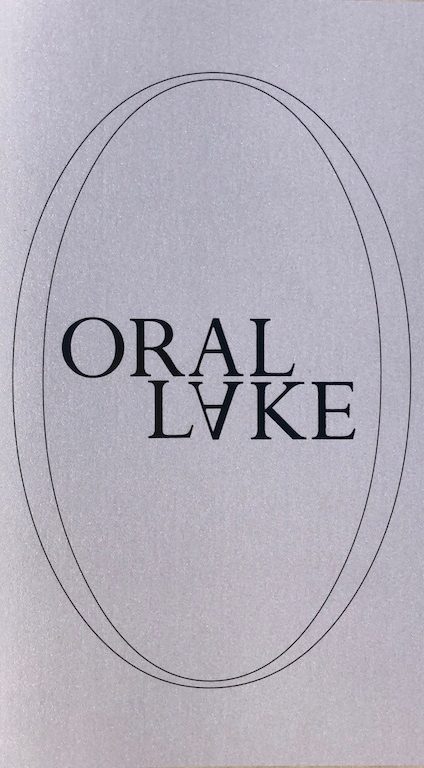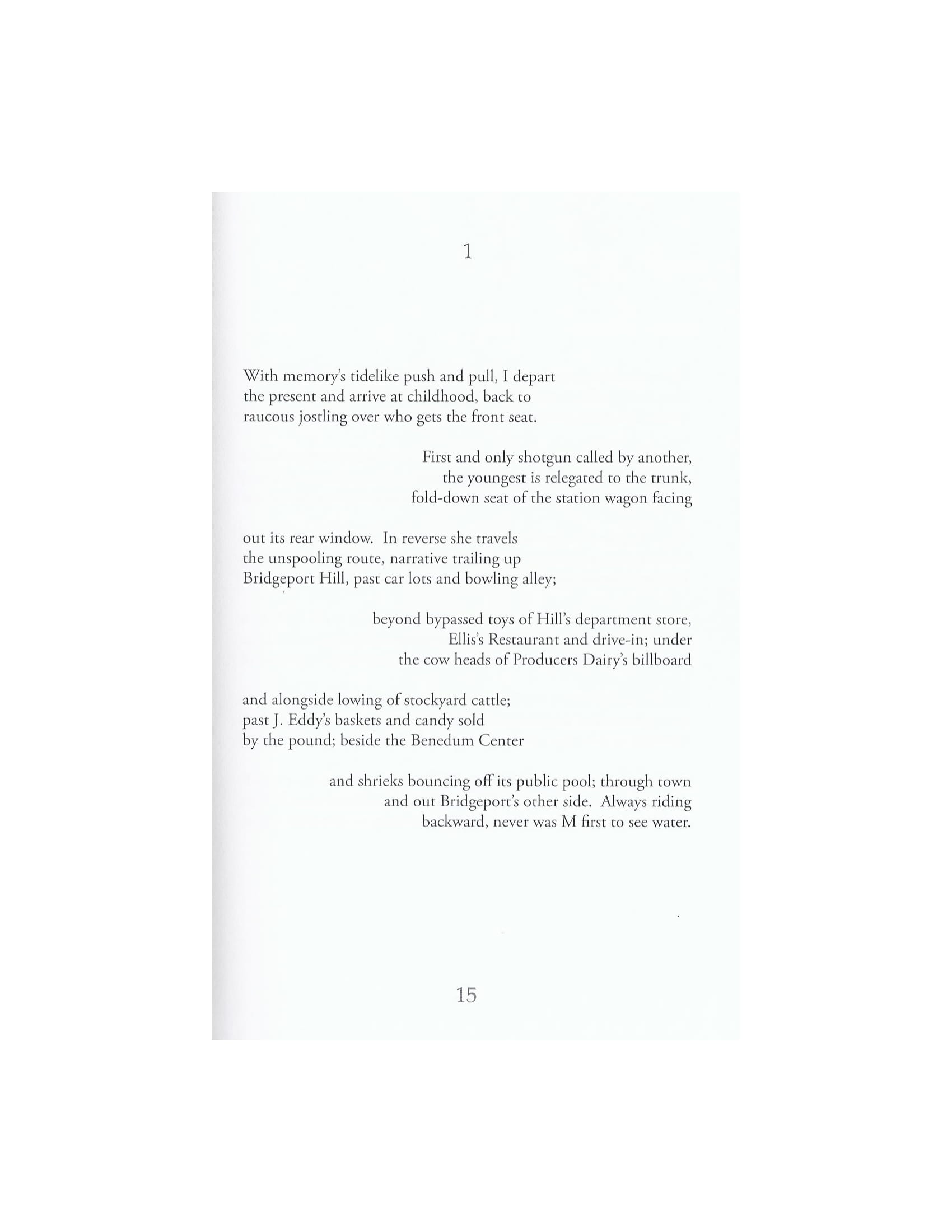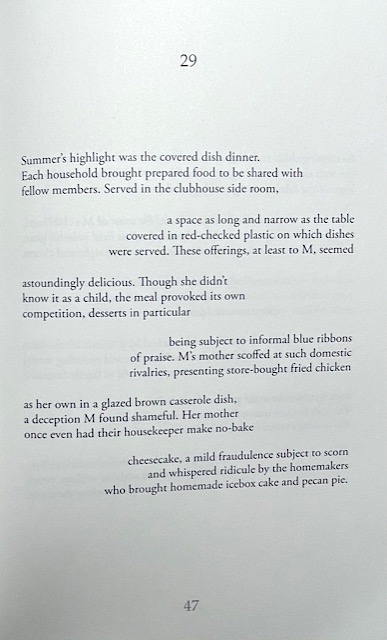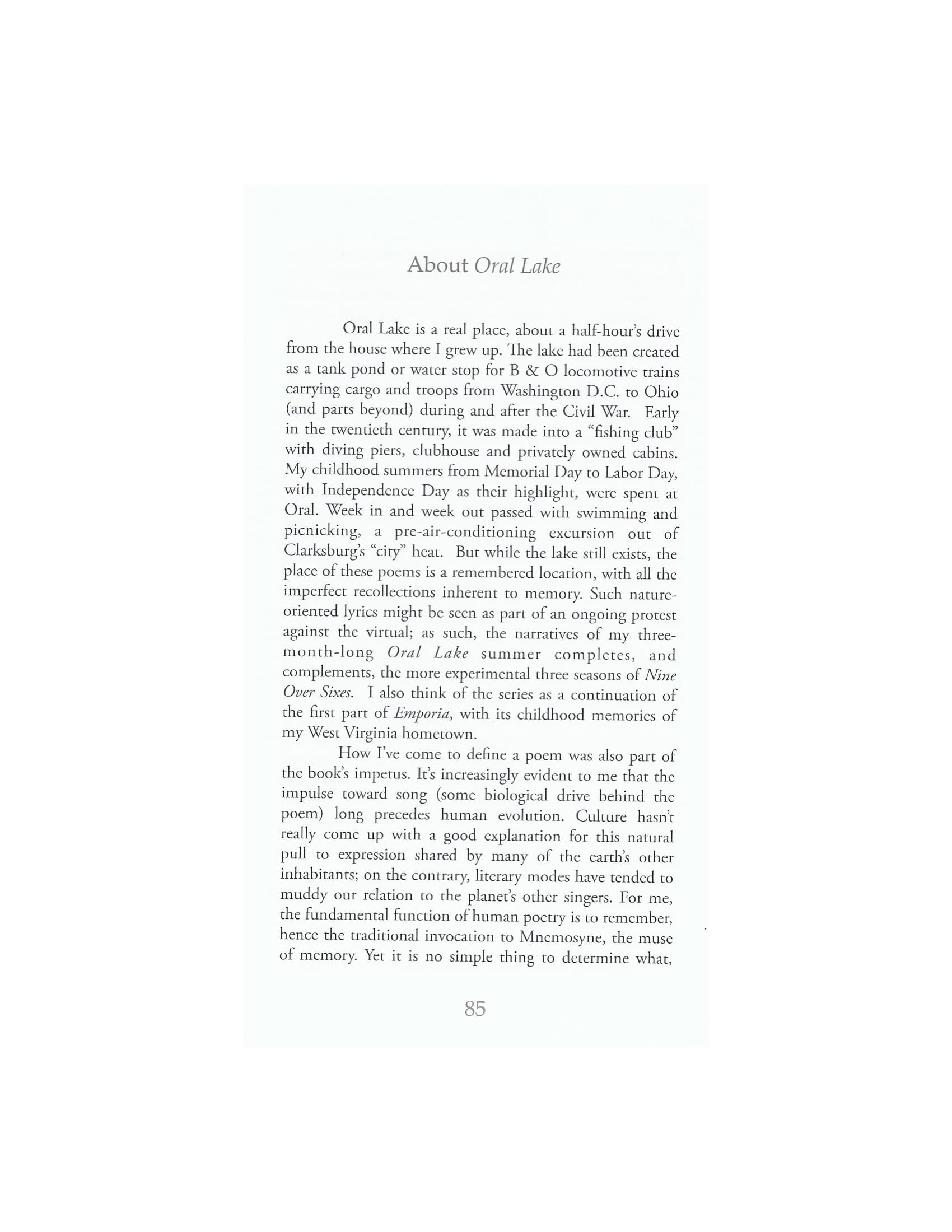Just as the lyrics of Nine Over Sixes expressed anxiety about digital invasions into private experience, the nature-oriented chants of Mary Maxwell’s fifth volume, Oral Lake, join in protest against virtual realms. “Metrical form creates a kind of paradoxical exemption from chronological time,” writes the poet in the afterword to her new collection of “reflectively dual” lyrics: “I’ve returned to my previous book’s subject of time and measure, but here it revolves around the recollections of a man-made lake,” a real place from her post-industrial West Virginia upbringing. “As my present voice and younger self fuse, “she explains, “I return to a communal past, one filled with coal-black stories. The poems try to come to an understanding of my own personal history of deep melancholy…. Long-internalized family lore forms one kind of legacy on which these poems draw… [arriving] with something of the quality of voices coming across water.”
It is “a world remembered and rendered into memorable song,” as described by an admiring reviewer, in which “the reader feels herself part of a deeply lived experience, the epiphanies and stings and frissons of youth, and all that enveloped in the West Virginia landscape of land and water that enfolds the imprint of past generations of ancestors.” In Oral Lake readers will find a poetic cycle in which (as the author herself proposes in her afterword) “the personal and the historical are indissolubly combined, songs of the past and present… leaning toward a future.”




